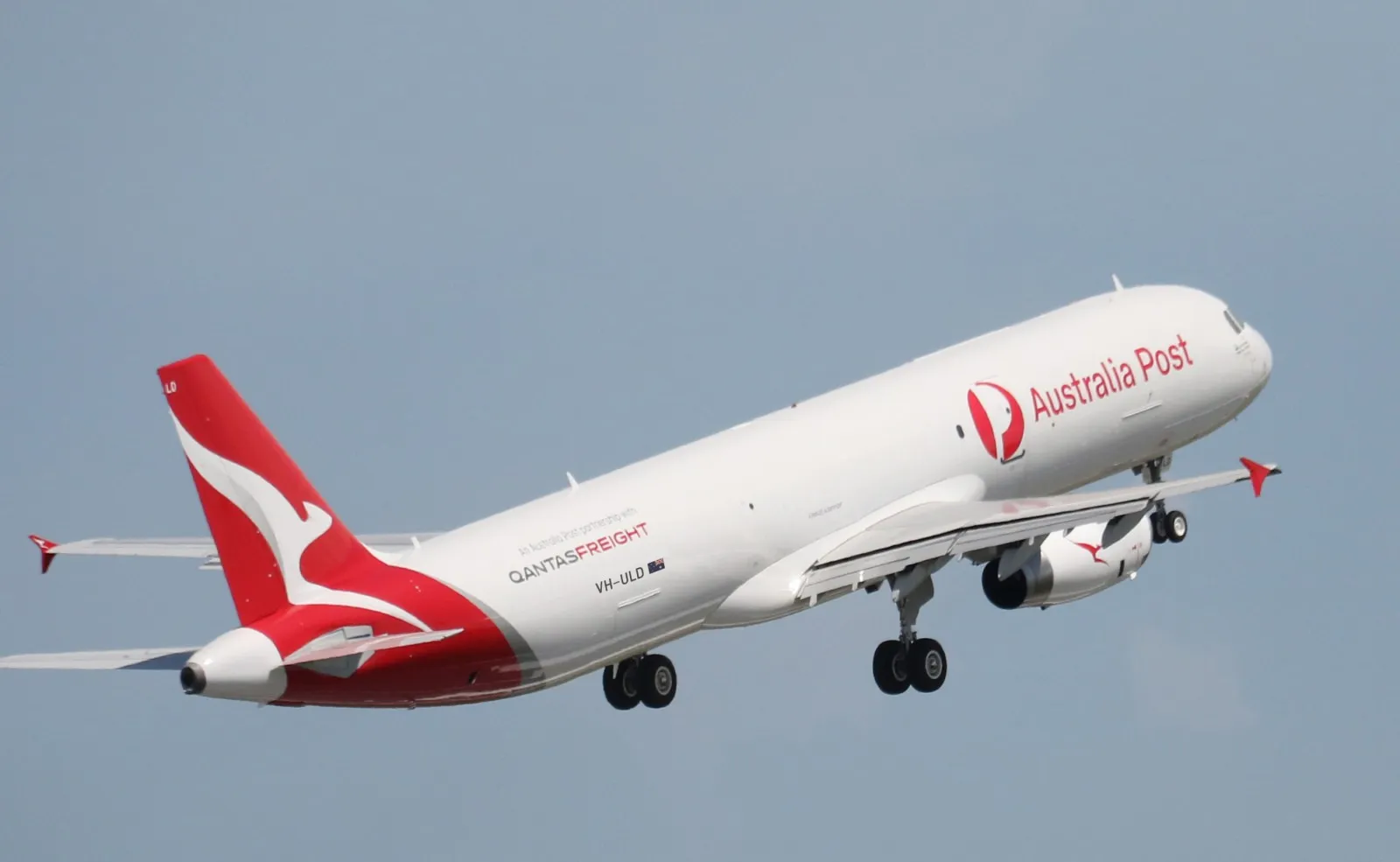
QANTAS OPTS FOR MORE A321P2Fs TO HANDLE BOOMING E-COMMERCE
Aug 15, 2022

Qantas has announced plans to expand its fleet of Airbus A321P2F freighters to meet the growing demands of e-commerce. With the surge in online shopping, the airline aims to enhance its cargo capabilities and improve delivery efficiency. The A321P2F, known for its versatility and cost-effectiveness, will play a crucial role in bolstering Qantas' logistics operations. This strategic move reflects the airline's commitment to adapting to changing market dynamics and positioning itself as a key player in the rapidly evolving freight sector, ensuring timely and reliable service for customers in the booming e-commerce landscape.
As the demand for e-commerce continues to skyrocket, Qantas has strategically decided to expand its fleet by opting for more A321P2F aircraft. This decision not only reflects the airline's commitment to enhancing its logistics capabilities but also addresses the increasing need for efficient cargo transport in the booming online shopping sector. The A321P2F, which stands for Passenger-to-Freighter, is designed specifically to accommodate the growing freight requirements of companies that rely heavily on air cargo.
The Rise of E-Commerce and Its Impact on Air Cargo
The e-commerce industry has witnessed unprecedented growth, especially in the wake of the global pandemic. Consumers have shifted their buying habits, favoring online shopping over traditional retail. This transformation has resulted in a surge in demand for fast and reliable delivery services. As a response, airlines like Qantas are investing in modern freighter aircraft to meet the logistics demands of this expanding market.
According to recent statistics, global e-commerce sales are projected to reach over $6 trillion in 2023, making it essential for logistics providers to adapt quickly. Qantas recognizes this trend and aims to enhance its cargo operations with the acquisition of more A321P2Fs. This aircraft can efficiently handle various types of freight, making it an ideal choice for e-commerce shipments.
Introducing the Qantas A321P2F Fleet
The A321P2F is a versatile aircraft that provides numerous advantages for cargo transport. Its design allows for a maximum payload of approximately 28 tonnes, enabling the transport of a wide range of goods. Additionally, the aircraft's spacious cargo hold can accommodate up to 14 standard pallets, making it suitable for various e-commerce shipments.
| Feature | Details |
|---|---|
| Maximum Payload | 28 tonnes |
| Cargo Capacity | Up to 14 standard pallets |
| Range | Up to 3,500 km |
| Fuel Efficiency | 30% lower fuel burn compared to previous models |
This robust capability positions Qantas to better serve its customers in the e-commerce sector, ensuring timely deliveries and enhanced operational efficiency. The airline's decision to expand its fleet with the A321P2F aligns with its long-term strategy to capitalize on the growing demand for air freight services.
Benefits of the A321P2F for Qantas
The addition of more A321P2F aircraft presents several benefits for Qantas as it navigates the evolving landscape of air cargo. Some of the key advantages include:
- Increased Capacity: With more freighter aircraft, Qantas can increase its cargo capacity, allowing it to handle larger volumes of e-commerce shipments.
- Improved Flexibility: The A321P2F's versatile design enables Qantas to adapt its operations to meet varying customer needs, whether it be for perishables, electronics, or other goods.
- Cost Efficiency: The aircraft's fuel efficiency translates to lower operational costs, enabling Qantas to offer competitive pricing for its air freight services.
- Environmental Sustainability: By utilizing modern aircraft like the A321P2F, Qantas is investing in more sustainable aviation practices, reducing its carbon footprint in the process.
Qantas' Commitment to E-Commerce Growth
Qantas is not just expanding its fleet; it is also enhancing its overall logistics strategy to better serve the e-commerce market. The airline has implemented various initiatives aimed at streamlining operations, improving customer service, and leveraging technology to facilitate faster deliveries.
In addition to acquiring more A321P2Fs, Qantas is investing in digital solutions to optimize its cargo operations. This includes the use of advanced tracking systems that provide real-time updates to customers about their shipments, enhancing transparency and trust in the delivery process.
The Future of Air Cargo with Qantas
As Qantas continues to expand its A321P2F fleet, the airline is well-positioned to become a leader in the air cargo sector, particularly in the e-commerce space. By adapting to the changing needs of consumers and businesses alike, Qantas is not only ensuring its growth but also supporting the broader economy that relies on efficient logistics solutions.
In conclusion, Qantas' decision to opt for more A321P2Fs is a strategic move that aligns with the booming e-commerce industry. With enhanced capabilities, improved efficiency, and a commitment to sustainability, the airline is set to capture a significant share of the air cargo market, ensuring timely deliveries and customer satisfaction.
Related Articles

Explore Thailand: The Best Islands to Visit for Paradise, Adventure, and Relaxation

The Ultimate Guide to the Best Islands in Thailand for Your Next Getaway

Do babies need passports? How to get a passport for a newborn

How to get a U.S. passport fast: here’s how to expedite the process

What is Mobile Passport Control: 5 reasons why you should use it

SENTRI vs. Global Entry: A detailed guide

Do you need a passport to go to the Bahamas? Let’s find out

Do you need a passport to go to Mexico? A detailed guide

Do you need a passport to go to Canada? We got the answer

Do You Need a Passport for a Cruise: An Essential Travel Guide

Booster Seat Requirements: All the Rules to Follow in Your Rental Car

What Are the World’s Most Powerful Passports, and How Does Yours Rank?

How to Take a Passport Photo at Home: A Helpful Guide

You've got to have heart! Southwest's new livery

Your opinion: Should water be free on low cost carriers?

Young women bolder than guys as solo travellers
